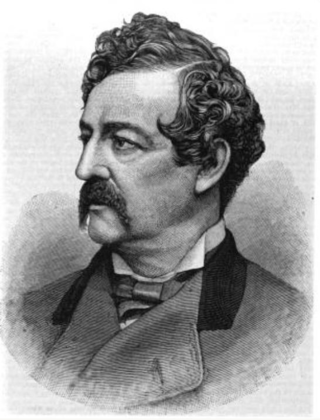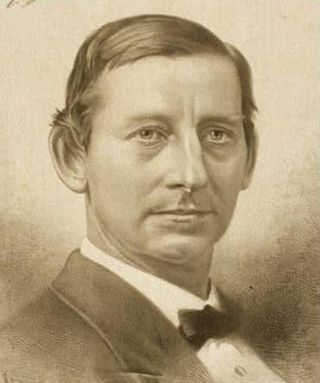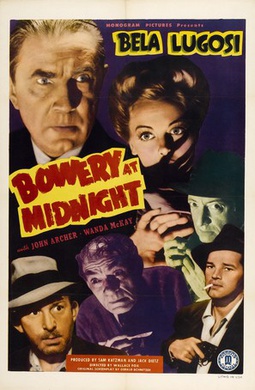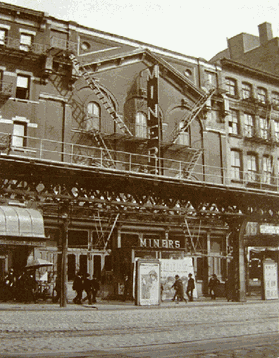Related Research Articles

Errol Leslie Thomson Flynn was an Australian actor who achieved worldwide fame during the Golden Age of Hollywood. He was known for his romantic swashbuckler roles, frequent partnerships with Olivia de Havilland, and reputation for his womanising and hedonistic personal life. His most notable roles include Robin Hood in The Adventures of Robin Hood (1938), which was later named by the American Film Institute as the 18th greatest hero in American film history, the lead role in Captain Blood (1935), Major Geoffrey Vickers in The Charge of the Light Brigade (1936), and the hero in a number of Westerns such as Dodge City (1939), Santa Fe Trail, Virginia City, and San Antonio (1945).

A comedian or comic is a person who seeks to entertain an audience by making them laugh. This might be through jokes or amusing situations, or acting foolish, or employing prop comedy. A comedian who addresses an audience directly is called a stand-up comedian.
"Bartleby, the Scrivener: A Story of Wall Street" is a short story by the American writer Herman Melville, first serialized anonymously in two parts in the November and December 1853 issues of Putnam's Magazine and reprinted with minor textual alterations in his The Piazza Tales in 1856. In the story, a Wall Street lawyer hires a new clerk who, after an initial bout of hard work, refuses to make copies or do any other task required of him, refusing with the words "I would prefer not to."

The Bowery is a street and neighborhood in Lower Manhattan in New York City, United States. The street runs from Chatham Square at Park Row, Worth Street, and Mott Street in the south to Cooper Square at 4th Street in the north. The eponymous neighborhood runs roughly from the Bowery east to Allen Street and First Avenue, and from Canal Street north to Cooper Square/East Fourth Street. The neighborhood roughly overlaps with Little Australia. To the south is Chinatown, to the east are the Lower East Side and the East Village, and to the west are Little Italy and NoHo. It has historically been considered a part of the Lower East Side of Manhattan.

William Poole, also known as Bill the Butcher, was the leader of the Washington Street Gang, which later became known as the Bowery Boys gang. He was a local leader of the Know Nothing political movement in mid-19th-century New York City.
Beginning July 7, 1834, New York City was torn by a huge antiabolitionist riot that lasted for nearly a week until it was put down by military force. "At times the rioters controlled whole sections of the city while they attacked the homes, businesses, and churches of abolitionist leaders and ransacked black neighborhoods."
Edward Joseph Flynn was an American lawyer and politician. Flynn was a leading Democratic politician of the mid-twentieth-century, known for his tight control of the Bronx Democratic Party organization after 1922, and his close association with Presidents Franklin D. Roosevelt and Harry S. Truman

The Bowery Theatre was a playhouse on the Bowery in the Lower East Side of Manhattan, New York City. Although it was founded by rich families to compete with the upscale Park Theatre, the Bowery saw its most successful period under the populist, pro-American management of Thomas Hamblin in the 1830s and 1840s. By the 1850s, the theatre came to cater to immigrant groups such as the Irish, Germans, and Chinese. It burned down four times in 17 years, a fire in 1929 destroying it for good. Although the theatre's name changed several times, it was generally referred to as the "Bowery Theatre".

Thomas Souness Hamblin was an English actor and theatre manager. He first took the stage in England, then immigrated to the United States in 1825. He received critical acclaim there, and eventually entered theatre management. During his tenure at New York City's Bowery Theatre he helped establish working-class theatre as a distinct form. His policies preferred American actors and playwrights to British ones, making him an important influence in the development of early American drama.

The Chatham Theatre or Chatham Street Theatre was a playhouse on the southeast side of Chatham Street in New York City. It was located at numbers 143-9, between Roosevelt and James streets, a few blocks south of the Bowery. At its opening in 1839, the Chatham was a neighborhood establishment, which featured big-name actors and drama. By the mid-1840s, it had become primarily a venue for blackface minstrel shows. Frank S. Chanfrau restored some of its grandeur in 1848.

Francis S. Chanfrau was an American actor and theatre manager in the 19th century. He began his career playing bit parts and doing impressions of star actors such as Edwin Forrest and of ethnic groups.

George Washington Lafayette Fox was an American actor and dancer who became known for his pantomime Clown roles, and who based the characterizations for these roles on his inspiration Joseph Grimaldi.

Bowery at Midnight is a 1942 American Monogram Pictures horror film directed by Wallace Fox and starring Bela Lugosi and John Archer. The film was re-released by Astor Pictures in 1949.

Ipse dixit is an assertion without proof, or a dogmatic expression of opinion.
Thomas, Tom or Tommy Flynn may refer to:

Thomas Manders was an actor-manager and low comedian of the early 19th century.
Louisa Medina (c.1813–1838), also known as Louisa Honore de Medina, Louisa Medina Hamblin, and the nickname Louisine, was a playwright and literary figure in New York City between the years 1833 and her death. She wrote poems, short stories, and approximately 34 melodramas of which only 11 remain extant. She is mostly known for adapting dramatic versions of Edward Bulwer-Lytton'sLast Days of Pompeii (1835) and Ernest Maltravers (1838), and Robert Montgomery Bird'sNick of the Woods (1838), among others. In an era when successful plays typically ran 3-4 nights, Last Days of Pompeii set a record by running for twenty-nine days. This was the earliest known example of a "long run" for a play, a technique which became regularly used by Thomas Hamblin. Medina is also accredited as the first women in American Theatre to earn her living exclusively as a dramatist. Louisa Medina's progressive inclinations concerning her education and self-reliance marks her as an indicator of the rise of First-Wave Feminism in America.

Elizabeth Hamblin was a British-born American stage actress and one of the first female theatre managers in the United States.

Miner's Bowery Theatre was a vaudeville or variety show theater opened in the Bowery of New York by Senator Henry Clay Miner in 1878.

Jan Duggan was an American film and stage actress.
References
- 1 2 Rosemarie K. Banks (1997). Theatre Culture in America 1825-1860. Cambridge University Press.
- ↑ Whitman, Walt. Prose Works. Philadelphia: David McKay, 1892; Bartleby.com, 2000. www.bartleby.com/229/. Volume V, 'November Boughs'; chapter 14, 'The Old Bowery': 'It must have been about 1834 or ’35. A favorite comedian and actress at the Bowery, Thomas Flynn and his wife, were to have a joint benefit...'